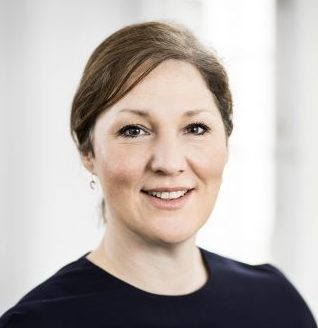The Global Maritime Forum has recently taken shape to better contribute to a positive long term change for the industry and society. Following the successful work of the Danish Maritime Forum, this new forum aims to serve as a broader platform for dialogue and collaboration. Fourteen global and prominent industry leaders are behind its foundation. Johannah Christensen & Michael Soested, Directors of the Global Maritime Forum talk about their hopes and aspirations and present the agenda. The Forum intends to present the first results of its initiatives at the inaugural summit in October 2018.
SAFETY4SEA: How did the need for the Global Maritime Forum to succeed the Danish Maritime Forum emerge? What further benefits will this new platform now provide to the industry?
There has been a strong call from industry leaders to create a new Global Maritime Forum to succeed the Danish Maritime Forum. It has become clear that there is a need for a common platform for high-level leaders from the entire maritime spectrum to drive positive change for the industry and society.
S4S: Danish Maritime Forum has been recognized as the ‘Davos of the maritime industry’? By which means the new Forum aims to retain the title?
The Global Maritime Forum will take the Danish Maritime Forum to the next level as a global platform for collaboration and problem-solving across the maritime industry. It has two core activities. The primary vehicle is an annual summit which will bring together senior figures from across the maritime industry with other influential stakeholders to discuss industry-wide, long term challenges. In between meetings, the Forum will also serve as a broader platform for dialogue and collaboration on topics of major significance for the maritime community.
S4S: What are your hopes & aspirations for the future of shipping now that the Global Maritime Forum has been launched?
The maritime industry is the lifeblood of the global economy and it is in a unique position to contribute to sustainable growth that benefits all. The Global Maritime Forum will stimulate progress by bringing together people from all parts of the global maritime industry and its stakeholders who have the will and the influence to make positive change to discuss challenges and to work together on finding new solutions.
S4S: Do you think there is a widespread understanding of sustainability in all sectors of the industry? What are your thoughts over the progress made so far?
The maritime industry has the potential to increase economic growth and global living standards, while at the same time reducing global warming and environmental degradation. The industry has already taken steps to reducing airborne emissions. Maritime transport accounts for over 90% of world transport but only 2.7% of global CO2 emissions. Despite this relative fuel efficiency, the sector is increasingly moving center stage in demands for more ambitious climate action. By working together with governments and other key stakeholders, the maritime industry has an opportunity to shape what a deal for shipping might look like and ensure the most effective course of action.
S4S: In your own opinion, what elements of the Forum’s work will hold the greatest promise of making a significant, positive impact on industry in the future? What would be its focus areas?
As a fragmented and siloed industry in an interconnected world the maritime industry needs a shared platform to tackle collective challenges. As a consequence, the Global Maritime Forum will convene leaders from all parts of the maritime value chain and from all geographies as well as its many stakeholders. It will create new opportunities for collaboration and problem-solving and is designed to shift from dialogue to action. The Forum will provide new perspectives from inside and outside the industry and the ambition is that discussions at the Forum will give birth to decisions that make a real difference.
S4S: What role do you think the Global Maritime Forum could play in advocating for decarbonization of shipping?
The participants in the 2016 Danish Maritime Forum emphasized that one of the most pressing issues for the maritime industry is how to effectively address the climate challenge. Following this, the Global Maritime Forum is working together with Carbon War Room, UCL and the World Bank’s Carbon Pricing Leadership Coalition to build a global coalition of private and public stakeholders to bring forward a plan to decarbonize seaborne transport that could be presented to the industry for adoption.
S4S: Can you discuss the agenda that Global Maritime Forum has in place to prepare for the inaugural summit in October 2018?
The Global Maritime Forum’s annual summit will address global challenges that are particularly important to the maritime industry. The agenda for the inaugural summit is being developed in close collaboration with the industry and other key stakeholders to ensure the best discussions and outcomes. We also intend to present the first results on a number of initiatives, including subjects like decabonization, digitalization and protectionism.
S4S: What plans does Global Maritime Forum have to address digitalization issues in line with cyber safety & security?
We plan an initiative to generate insights into how emerging digital technologies are transforming the global maritime industry as well as the impact of these disruptive forces on the global economy, the international trading system and on the wider society. The goal is to assist key stakeholders in the maritime industry in exploring possible responses and in uncovering opportunities for collaborative action to successfully transition to the digital economy.
S4S: What is your key message to industry stakeholders with respect to the future of global seaborne trade?
The global maritime industry is the backbone of globalization and international trade, contributing to human wellbeing through growth and development all around the world. But there is still great potential to increase the role and positive impact of the maritime industry. With the establishment of the Global Maritime Forum, the industry has a new high-level platform to shape the future of global seaborne trade.
The views presented hereabove are only those of the author and not necessarily those of SAFETY4SEA and are for information sharing and discussion purposes only.
[divider]
 Johannah Christensen is Director of the Global Maritime Forum. The Global Maritime Forum is a Copenhagen-based independent not-for-profit foundation dedicated to unleashing the potential of the global maritime industry. It brings together a broad spectrum of leaders from across the industry to find new solutions to the most important challenges facing the industry today and in the future. The Global Maritime Forum is the successor to the Danish Maritime Forum, and Johannah has been part of the team that established the Danish Maritime Forum from the beginning. Prior to this Johannah has helped businesses to address global challenges in a variety of different roles at INDEX: Design to Improve Life, at leading Scandinavian think tank Monday Morning, at the World Economic Forum and as an independent advisor.
Johannah Christensen is Director of the Global Maritime Forum. The Global Maritime Forum is a Copenhagen-based independent not-for-profit foundation dedicated to unleashing the potential of the global maritime industry. It brings together a broad spectrum of leaders from across the industry to find new solutions to the most important challenges facing the industry today and in the future. The Global Maritime Forum is the successor to the Danish Maritime Forum, and Johannah has been part of the team that established the Danish Maritime Forum from the beginning. Prior to this Johannah has helped businesses to address global challenges in a variety of different roles at INDEX: Design to Improve Life, at leading Scandinavian think tank Monday Morning, at the World Economic Forum and as an independent advisor.
 Michael Soested is Director of the Global Maritime Forum. The Global Maritime Forum is a Copenhagen-based independent international not-for-profit foundation dedicated to unleashing the potential of the global maritime industry. It brings together a broad spectrum of leaders from across the industry to find new solutions to the most important challenges facing the industry today and in the future. The Global Maritime Forum is the successor of the Danish Maritime Forum, and Michael has been part of the team that establishing Danish Maritime Forum from the beginning being Chief Advisor in the Danish Maritime Authority from April 2013 to December 2014. Before that Michael has served several years as Special Advisor in the Danish Ministry of Industry, Business and Financial Affairs.
Michael Soested is Director of the Global Maritime Forum. The Global Maritime Forum is a Copenhagen-based independent international not-for-profit foundation dedicated to unleashing the potential of the global maritime industry. It brings together a broad spectrum of leaders from across the industry to find new solutions to the most important challenges facing the industry today and in the future. The Global Maritime Forum is the successor of the Danish Maritime Forum, and Michael has been part of the team that establishing Danish Maritime Forum from the beginning being Chief Advisor in the Danish Maritime Authority from April 2013 to December 2014. Before that Michael has served several years as Special Advisor in the Danish Ministry of Industry, Business and Financial Affairs.






























































